Recently Google announced that link ads are withdrawn from their offerings. According to Google, this step has been taken after getting feedback from publishers, advertisers, and users and is an attempt to modernize Google AdSense’s ad units stack.
Because of the suddenness of the move, the announcement can be intimidating for some publishers. But rest assured, we believe that any technical development will help publishers in the long run.
In this blog, we have talked about what exactly is happening with link ads, how publishers will be affected by their withdrawal, and what they can do to ensure that their earnings don’t take a hit.
However, before moving on to these details, let’s take a quick look at what link ads are.
What Are Link Ads?
Links ads allow publishers to display a range of ads relevant to the interest of the user. These ads work by the principle of contextual targeting, and are therefore, responsive in nature. When a user visits a specific website, they are shown ads that are related to the content of that website.
For example, if a user visits a website that provides tips about how to take care of pet dogs, the link ads displayed on the website may include best dog food options, nearby veterinarians, or affordable toys for pets.
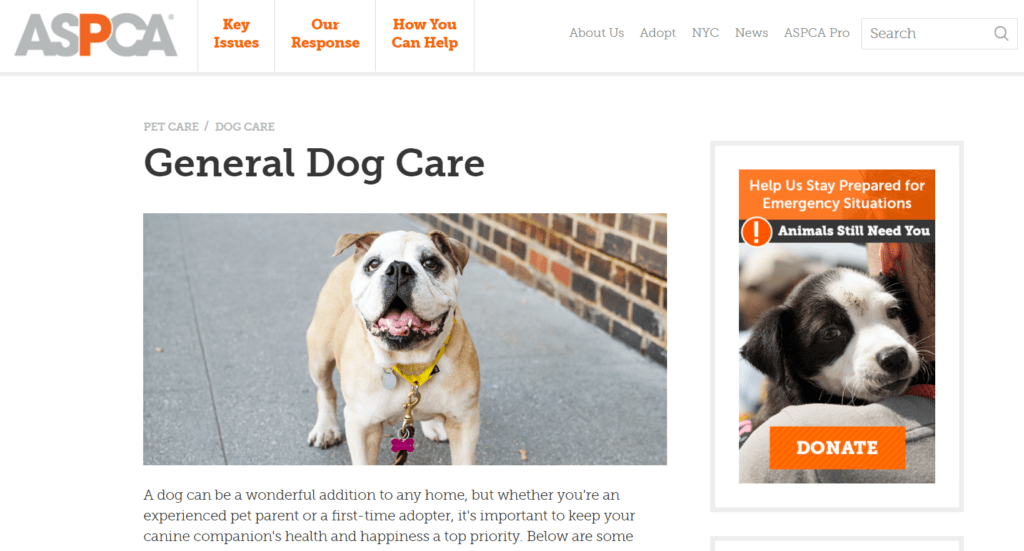
The publisher is paid if the user clicks on an ad on the linked page and not on the primary website. These ads are supported on different devices, including desktop and mobile, and automatically adapt to the page layout. Responsive link ads provide enhanced user experience, however, the publisher can also go for non-responsive link ads.
Note: Publishers who deploy link ads via AdSense can click on the linked topic but are NOT permitted to click on the ads of the resulting page. However, Google advises publishers to not click on the linked topic itself as well because that can result in inaccurate impressions.
What Can Publishers Expect From the Withdrawal of Link Ads?
As per Google’s decision, link ads will be disabled from 10th March 2021. This means that publishers will not have the option of creating link ads anymore.
Here’s what will happen after the removal of link ads comes into effect:
- Responsive display ads will be served on websites instead of responsive link ads.
- ‘Previously link ad unit’ will be added to the name of these ad units. This will be enforced for both fixed-size and responsive link ads.
- Publishers won’t be able to serve fixed-size link ads on their websites.
- Google will serve a blank ad in cases where it cannot collapse the link ad unit.
As a publisher, you don’t need to take any action during this process. Only publishers who are using fixed-size link ad units should remove them and look for other ad units to fill the gaps.
How Will Publishers Get Affected By This Decision?
At the present moment, Google’s decision may seem intimidating and publishers’ skepticism is warranted. Link ads have been a highly lucrative ad format to increase revenue for publishers. A lot of publishers using these ads have been satisfied with the results, which makes this move all the more confusing. They further proved to be a great tool for enhancing brand awareness for advertisers.
In an age where contextual advertising is becoming more and more important for the ad tech industry, link ads provided an effective way for serving users targeted ads. The retiring of link ads is bound to hit both publishers and advertisers initially.
In any case, the best way to move forward for publishers is to look for alternative ad units that can generate similar, if not more, revenues.
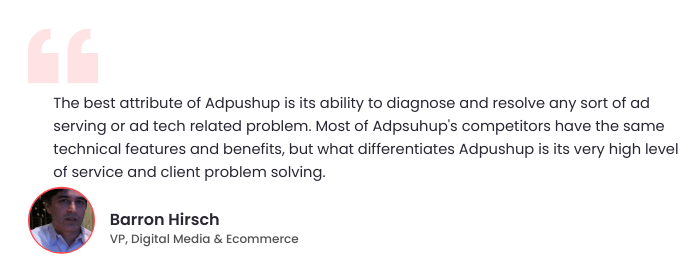
What Can Publishers Rely On Instead?
Thankfully, Google has given publishers a reasonable window to try other ad units that can fetch them increased RPM. During this time frame, we advise publishers to experiment with as many ad units as possible. This will give them a clear idea of what works best for them.
Here we have a list of ad units that can prove to be fruitful for publishers:
- Responsive Display Ads: These ads are the default type that will be replacing responsive link ads. As per Google’s experiments, responsive display ads provide returns as good as those with link ads. These ads offer increased reach, save time, and can be deployed with dynamic remarketing.
- Auto Ads: This ad unit can be a good alternative to fixed-size link ads. They are easy to use and can effectively increase your revenue. While using auto ads, you need to place one code piece on all all pages of your website and the ad will be automatically placed where they can perform the best.
- Native Ads: These ads are hailed for effectively increasing user experience. Native ads blend seamlessly along with the content on the site, which will make them a great addition to your inventory. These ad units can be used for both desktops and mobile devices.
- Matched Content: This may be an ideal solution for publishers who are currently leveraging fixed-size link ads. Matched content provides you with a way to ensure that users spend more time on your website. With this service, publishers can recommend similar content and topics to their users, which can help in improving loyalty of users and revenue generation.
Also read about other little-known AdSense features that can help optimize revenue.
Final Thoughts
Undoubtedly, links ads have been an asset for publishers and it is not going to be easy to move ahead without them. A great deal of confusion and derailment is occurring because of Google’s decision to retire link ads, mostly because they have been performing well.
But since the move has been made, we advise publishers to focus on the steps that they can take for making sure that their revenues do not take a hit. It will be of help if publishers start to experiment with different ad units as soon as possible. This way they will be able to choose the right kind of ad units for their websites.

Shubham is a digital marketer with rich experience working in the advertisement technology industry. He has vast experience in the programmatic industry, driving business strategy and scaling functions including but not limited to growth and marketing, Operations, process optimization, and Sales.



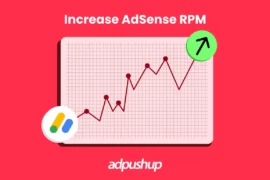
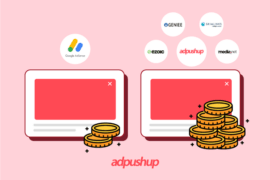
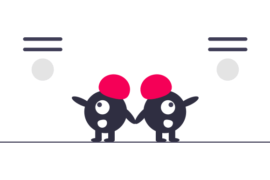


4 Comments
Very bad step by Google adsense team. My website earning dropped by 60 percent after 10th March 2021
Pathetic decision indeed
Hi Rahul,
We understand the frustration. We recommend reaching out to our team at AdPushup and we can definitely help you in recovering the lost revenue caused by link ads. You can book a free call through this link: https://www.adpushup.com/publisher/get-started/?utm_campaign=inbound&utm_source=blog&utm_medium=navbar
My earnings drop since april has started and since link ads disapeared I already have 71%drop compared to previous month, and it keeps going down, I am using all existing ad formats and none of them work for me. My earnings keep droping. lsat 7 days is 1/3 less that it was before, So fonfused and frustrated.
Hi Joseph,
We understand the frustration. We recommend reaching out to our team at AdPushup and we can definitely help you in recovering the lost revenue caused by link ads. You can book a free call through this link: https://www.adpushup.com/publisher/get-started/?utm_campaign=inbound&utm_source=blog&utm_medium=navbar